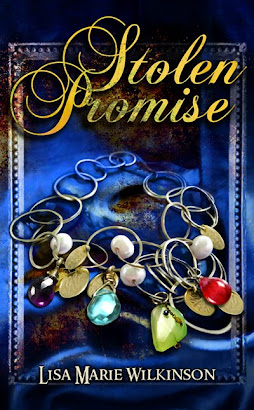
After reading Breathless, the final book in the House of Rohan series by Anne Stuart, I concluded that my concept of what constitutes a series novel may need to change. The Rohan series includes a novella, (The Wicked House of Rohan), and the trilogy of titles: Ruthless, Reckless, and Breathless.
My concept of a series book was formed long ago by works such as the St. Germain series of vampire novels by Chelsea Quinn Yarbo and by Diana Gabaldon’s series of time-travel novels beginning with Outlander. JR Ward’s Black Dagger Brotherhood series and Kresley Cole’s Immortals After Dark series are other examples of collections that support my idea of what series books are all about.
In my view, a series is comprised of multiple books forming the atlas of a literary world, a landscape spanning generations, many characters, and a variety of settings. The experience of reading a book in a series should be made richer by reading the books that come before and after it as the picture expands in much the same way a well-researched genealogical tree expands with painstaking research.
The House of Rohan series did not provide the series experience to which I’ve become accustomed, although that is not necessarily a bad thing. It just leaves me wondering if publishers might not be packaging stand-alone books as a series in order to spur book sales and requiring authors to invent a few broad common elements in order link the books in a series.
The single recurring, unifying element in the House of Rohan books is the Heavenly Host, a debauched group of émigrés who gather regularly for parties dedicated to the pursuit of physical pleasure. The Wicked House of Rohan introduces us to the group of men who conceived of the Heavenly Host and the woman intended as their first sacrifice. Ruthless continues the theme using the same setting and placing its hero at the center of the festivities, and then Reckless introduces us to the second generation of participants (which includes the son of the hero in Ruthless). The third installment, Breathless, again features the Heavenly Host while switching things up a bit by centering the story around a female member of the Rohan clan.
These books could easily be stand alone novels because they follow the generations in a linear fashion and few characters make appearances in more than one book. Breathless feels the least connected to the other novels because it has distinct gothic elements and an unpalatable revenge angle that depicts a scarred, lame “hero” called “The Scorpion” who plots to use the novel’s heroine as a tool of vengeance against her family.
The threads that link Breathless to the other novels in the Rohan trilogy are slender: Miranda Rohan is the daughter of Adrian Rohan from Reckless, and the Heavenly Host factors into the plans of the revenge-obsessed hero. Other than that, Miranda could be anyone’s daughter and the hero’s plans could have included raffling her off to the highest bidder at the local gaming hell instead of offering to share her with other men at a Heavenly Host fete.
As a reader, I didn’t feel a connection to the other House of Rohan books while reading the individual entries in the series, although I enjoyed all three books based on their own merit. Even the Heavenly Host premise that made the blurb for Ruthless so tantalizing eventually became tedious by the final book because the setting had been overused as the main area of overlap.
Writing an effective series book represents a huge challenge from a writing perspective as well. How does an author penning book #5 in a series decide how much world-building to include if elaborate attention was given to creating and describing the world in book #1?
How much back story should be included for characters making a cameo appearance in one book when those same characters will be featured in a book of their own in the series? How much repetition is too much? How does a writer provide a reader who is reading a series out of order with enough information and still avoid annoying the reader who already understands the foundation of the world in which the stories are set?
From the reader’s point of view, do readers eventually burn out on series novels? Do they become so invested in their expectations of events in future books that they feel disappointed if the overall arc of the story takes a completely unexpected turn? Do they cringe when they hear that a series by a favorite author will feature multiple books releasing over a short period of time because it may mean their available budget for buying stand-alone books will be seriously reduced if they plan to pick up each book in a planned series?
Series books have been around for a long time, and they aren’t going away. They appear to be evolving to meet the demands of the marketplace, in much the same way the entire world of publishing is changing.

Lisa Marie


2 comments:
Interesting, Lisa!!!! Great post!
My love of the romance genre came from sneaking my mother's series Harlequin's. Still love them! Great post Lisa-
Post a Comment